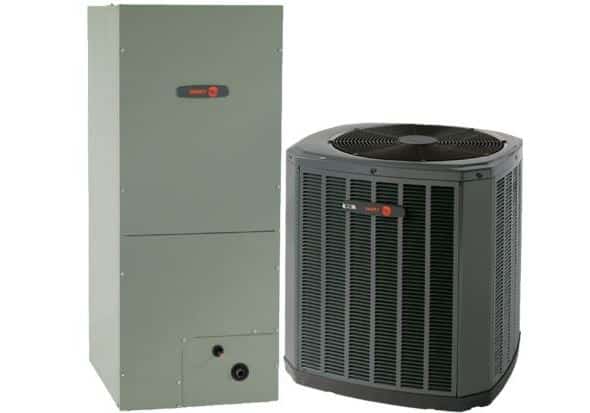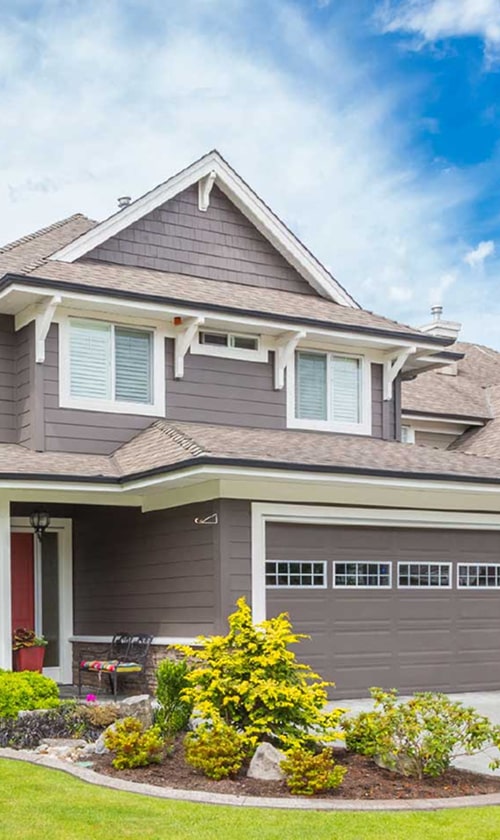
At Weather Masters Of Georgia, we often encounter homeowners pondering whether to replace their furnace and air conditioning units simultaneously. This decision goes beyond immediate comfort; it’s about optimizing long-term home efficiency, ensuring cost-effectiveness, and maintaining a harmonious HVAC system. Understanding the complexities of this decision is crucial for any homeowner looking to make an informed choice.
Why Replacing Furnace and AC at Same Time is Important?
Choosing to replace HVAC components isn’t just about the age or condition of your equipment. It’s a multifaceted decision that requires a deep understanding of how these systems work together, the efficiency gains from newer models, and the financial implications of such an investment.
Every home has unique needs, and this decision should be tailored to your specific situation, taking into account factors like your local climate, the size of your home, and your personal comfort preferences.
How do Furnaces and Air Conditioning Units work together?
Furnaces and air conditioning units are essential for maintaining a comfortable home environment. A furnace operates by burning fuel (such as natural gas, oil, or electricity) to heat air, which is then circulated throughout your home via a network of ducts. Air conditioners work on a different principle; they remove heat from indoor air, cool it, and then redistribute the chilled air back into your living spaces. While these systems often operate independently, they are interconnected in many HVAC setups, sharing components and ductwork.
Whereas, in many HVAC systems, the furnace and AC units share critical components, such as the blower motor, which is responsible for circulating air throughout your home. This shared infrastructure means that the efficiency of one system can directly impact the other. For example, pairing a new, high-efficiency AC unit with an outdated, less efficient furnace can hinder the overall performance and efficiency of your HVAC system.
Factors to Consider When Replacing Both
When contemplating the replacement of both your furnace and AC unit, several factors should be considered:
System Compatibility
Ensure that the new furnace and AC unit are compatible in terms of technology, efficiency, and design. This compatibility is crucial for the optimal performance of your HVAC system.
Energy Efficiency Ratings
Look for units with high energy efficiency ratings. This not only reduces your carbon footprint but also leads to significant savings on energy bills in the long run.
Installation Costs
Consider the total cost of installation, including potential discounts for replacing both units at the same time. Sometimes, HVAC contractors offer special deals for comprehensive replacements.
Long-term Savings
Evaluate the long-term financial benefits, including reduced maintenance costs, fewer repairs, and lower energy bills. These savings can offset the initial investment over time.
Home Comfort and Air Quality
Newer models often come with advanced features that improve home comfort and air quality. Consider these benefits when making your decision.
Benefits of Replacing Furnace and AC Together
- Increased Efficiency: Modern furnaces and AC units are designed with advanced technology that significantly enhances energy efficiency. This means they require less energy to heat or cool your home, leading to lower utility bills and a reduced carbon footprint.
- Cost Savings: The initial cost of replacing both units might seem daunting. However, this can be more economical in the long run. Bundling the installation of both units can lead to discounts from HVAC contractors, and the improved efficiency of new models can significantly reduce your monthly energy bills.
- Compatibility: New HVAC systems are designed with the latest technology in mind. Ensuring that your furnace and AC are compatible, especially regarding technology and efficiency ratings, is crucial for the optimal performance of your system. This compatibility extends to aspects like airflow, energy usage, and even the type of refrigerant used.
- Convenience: Tackling both replacements simultaneously can be less disruptive than doing them separately. It means going through the installation process once, rather than twice, and it can be easier to schedule and plan for a single, combined installation. This approach also means your home will be equipped with a fully functional, efficient system without any interim periods of reduced comfort or efficiency.
Considerations Against Simultaneous Replacement
Individual Lifespan of Units
Furnaces typically have a longer lifespan than AC units. If your furnace is relatively new, it might not make financial sense to replace it when your AC needs an upgrade. In such cases, replacing only the AC unit might be more cost-effective.
Upfront Costs
The initial cost of replacing both a furnace and an AC unit can be significant. This investment might not be feasible for every homeowner’s budget, especially if it’s unplanned or if there are other pressing home improvement needs.
Situational Factors
In some cases, such as if you’re planning to move soon or if one of your units is still relatively new and functioning well, it might not be necessary or cost-effective to replace both systems simultaneously. In these scenarios, it may be more prudent to replace only the unit that is older or underperforming.
Assessing Your Current System
Determining whether a replacement is needed involves a thorough evaluation of your current furnace and AC. Look for signs like frequent repairs, inconsistent temperatures, unusual noises, and rising energy bills. These indicators can suggest that your systems are nearing the end of their useful life and may not be operating efficiently.
Additionally, consider the age of your units; if they are close to or beyond their expected lifespan, it’s likely time to consider replacement.
Typically, AC units last 10-15 years while furnaces have a longer lifespan of 20-30 years, leading to more frequent AC replacements. However, if your furnace is older than 15 years, it’s advisable to upgrade both to a compatible set for optimal performance.
Financial Aspects
When considering the financial aspects, it’s important to compare the cost of replacing each unit separately versus together. Also, explore financing options, rebates, and tax credits that might be available to help offset the cost. These financial aids can make the investment more manageable and attractive in the long run.
It’s also worth considering the potential energy savings that new, more efficient units can offer, as these savings can significantly offset the initial investment over time.
Environmental Considerations
Older HVAC systems often consume more energy and may use refrigerants that are less environmentally friendly. Newer models are designed to be more eco-friendly, using less energy and refrigerants that are better for the environment. This not only helps reduce your carbon footprint but also aligns with broader environmental conservation efforts.
Additionally, newer systems often have improved filtration and air quality features, contributing to a healthier indoor environment.
Consulting with HVAC Professionals
At Weather Masters Of Georgia, we emphasize the importance of professional advice. Our team of experts can provide a comprehensive assessment of your current system, offer tailored recommendations based on your specific needs, and guide you through the selection and installation process.
We ensure that you choose the right solutions that meet your specific needs and preferences, taking into account factors like your home’s layout, your family’s comfort needs, and your budget.
- Matched Systems: A matched system, where the furnace and AC are designed to work together, can significantly improve efficiency and performance. This is particularly important when upgrading to a high-efficiency cooling system. Matched systems are designed to work in tandem, providing optimal airflow, temperature control, and energy usage.
- Cost Considerations: A detailed cost analysis can help you understand the long-term savings versus the upfront investment. This includes considering potential energy savings, reduced maintenance costs, and the likelihood of fewer repairs. It’s also important to factor in the potential increase in your home’s value due to the installation of a new, efficient HVAC system.
- Scenarios for Replacement: In some scenarios, like when both systems are over a decade old, replacing both can be more beneficial. This ensures that you won’t face frequent breakdowns or inefficiencies in the near future. Additionally, if your current systems are not meeting your comfort needs or are causing high energy bills, a simultaneous replacement can address these issues effectively.
Conclusion
Deciding whether to replace your furnace and AC at the same time involves a careful evaluation of various factors. At Weather Masters Of Georgia, we are dedicated to helping you navigate this decision, ensuring that you make a choice that enhances your home’s comfort, efficiency, and value.
Remember, the right decision is unique to each homeowner’s situation, and we’re here to provide expert guidance and support every step of the way.




